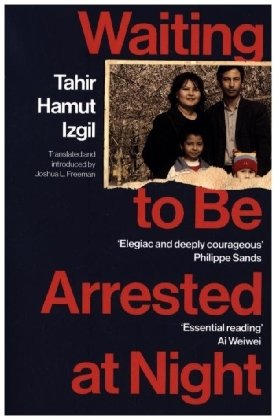A Uyghur poet's piercing memoir of life under the most coercive surveillance regime in history
'Essential reading'
AI WEIWEI, author of 1000 Years of Joys and Sorrows
'Deserves to be read widely'
FINANCIAL TIMES
As his friends disappeared one by one, it became clear to Tahir Hamut Izgil that fleeing his home in Xinjiang was his family's only hope.
In this unforgettable story of courage and survival, Tahir charts the Chinese government's ongoing destruction of the Uyghur community and way of life in spare, gripping, finely tuned prose.
Waiting to Be Arrested at Night is an urgent call for the world to awaken to a humanitarian catastrophe, and a moving tribute to those Uyghurs whose voices have been silenced.


